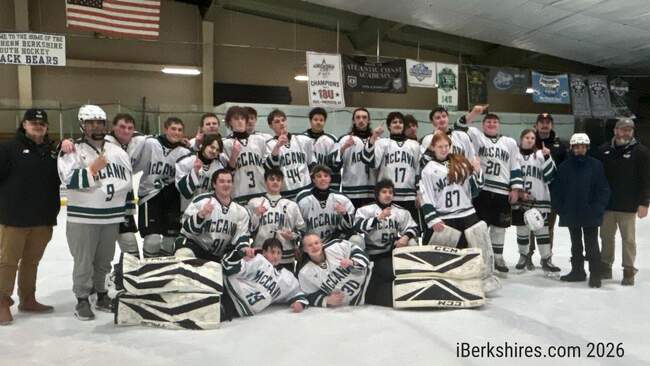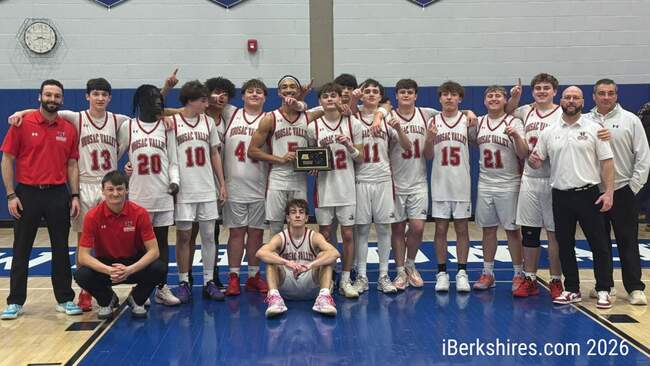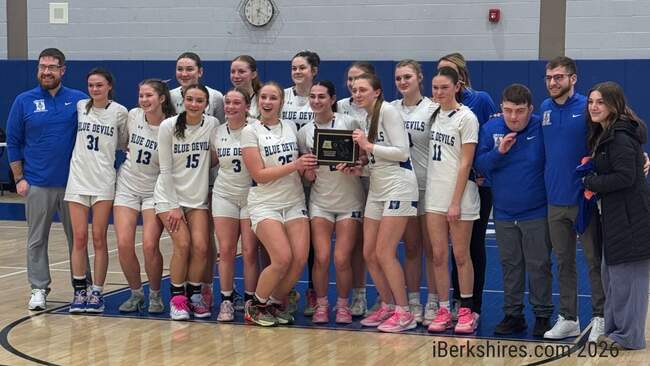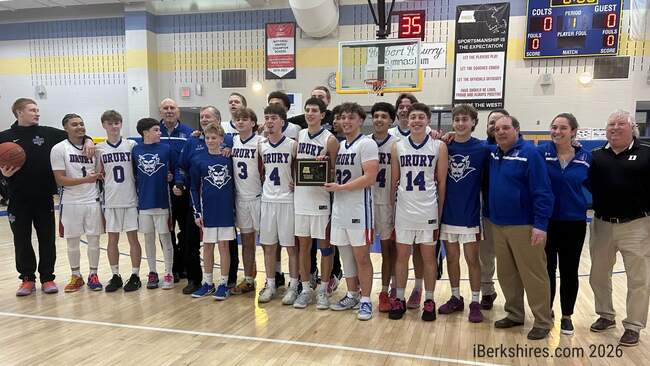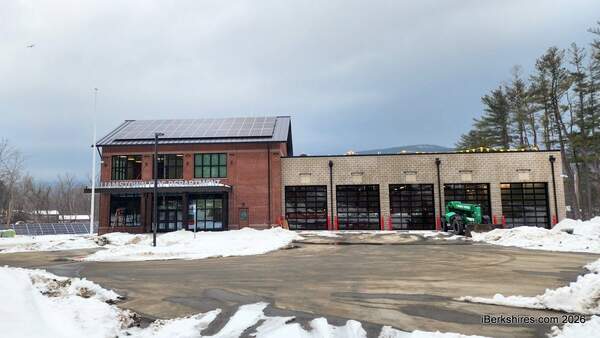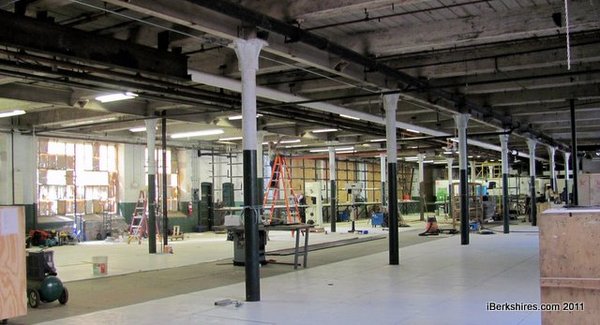
Blackinton Mill Backdrop For Theater Productions
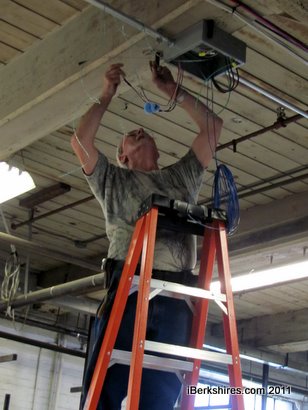 Bruce Belanger of Moresi & Associates was running wires on the first floor on Wednesday. |
Williamstown Theatre Festival has set up shop in the expansive, vacant and very historic Massachusetts Avenue mill, not far from the theater company's home at the '62 Center for Theatre and Dance on the Williams College campus.
The theater cannot fulfill all of WTF's space needs, said general manager Joe Finnegan. "The magnitude of what we do in eight weeks this summer — we'll do sets for seven different shows."
On Thursday, workers were wiring overhead lights and building counters and storage on the first floor of the former textile mill. The company has also taken over part of the third floor and basement, as well as a semi-detached building in the rear.
"It is a very fast-paced project," said David Moresi of Moresi & Associates, construction manager of the property who was hired by WTF to renovate the space.
He said the project has been under way since the last days of April. Included in the changes and additions that need to be accomplished by early June are installing bathrooms and wiring for phones, and putting down proper flooring.
Moresi said he was impressed at how the theater festival's design studio has had an impact on the community.
"Local goods and materials are purchased and delivered to the mill, where they are used for sets and props for the productions," he said. "Over 50 interns and students will be working there this summer and they will be shopping local for their needs and supporting local restaurants.
"It is great to see life returning to this mill that has sat vacant for so long."
It was never feasible for the theater to contain all the equipment, tools, props, etc., used in set construction at the college campus. The scene shop had been located at the Hoosac Mill on Union Street. But the roof on the century-old textile mill, now known as NoAMA (for North Adams, MA) collapsed this winter as snowstorms buried the Berkshires. The city deemed the building unsafe on Feb. 11, posing a challenge to the theater company.
"We had in that building 50 years of props stored, all our tools for putting together sets, lighting, signage, banners and more," said Finnegan. "We did not know what condition our stuff was in or when we would be able to get it out." The WTF fleet of 10 vehicles was also stored in the mill.
For more than two months, the only people allowed into the building were an engineer and construction workers who shored up the building.
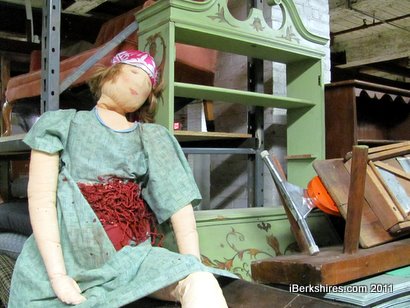 A raggedy doll prop sits next to a hutch and other pieces of furniture used in Williamstown Theatre Festival's productions. |
"We considered (the former) Chevrolet dealership in North Adams and the race track in Pownal, but decided on the Blackinton Mill. The landlords were willing to make improvements, and rent was doable," Finnegan said. "Before we signed a lease we reached out to the landlords, and they had everything brought up to code — electrical wiring, fire doors and more."
The WTF was informed on May 3 that it could go into the NoAMA building, and about a week later trucks from Connors Brothers Moving & Storage retrieved the tools and materials. They were surprised when they found only a few items had been damaged by the roof collapse.
WTF has signed a five-year lease with Blackinton Mill owners Lawrence and Marc Magid, doing business as Magid Mill LLC, for 32,000 square feet, comprised of the boiler building, the entire first floor of the mill and 6,000 square feet on the third floor.
"The third floor is light so it is a good place to lay out and paint drops," said Finnegan, referring to scenery backdrops.
The Magid brothers bought the mill in January 2010 in hopes of using the vacant building for commercial or residential use. They're happy to have WTF as their first tenant rejuvenating the building, said Lawrence Magid. Speaking from his office in New York, Magid said, "It has generated a lot of interest. We are receiving a lot of inquiries from artists wanting space for studios."
Besides students and interns, scenic designers, carpenters and others will be coming to the Blackinton Mill. This year, seven scenic designers will lend their talent for design to WTF. Among them will be David Kornis, who created the set for the 2010 production of "Our Town" and has designed for Broadway, film and television.
Soon after the designers arrive on June 1, they will be putting up sets in the Blackinton Mill for the shows that will launch the festival's 57th season: "A Streetcar Named Desire" from June 22 to July 3 on the Nikos Stage and "Three Hotels" from June 29 to July 24 on the Main Stage.
Tags: Blackinton, WTF,

